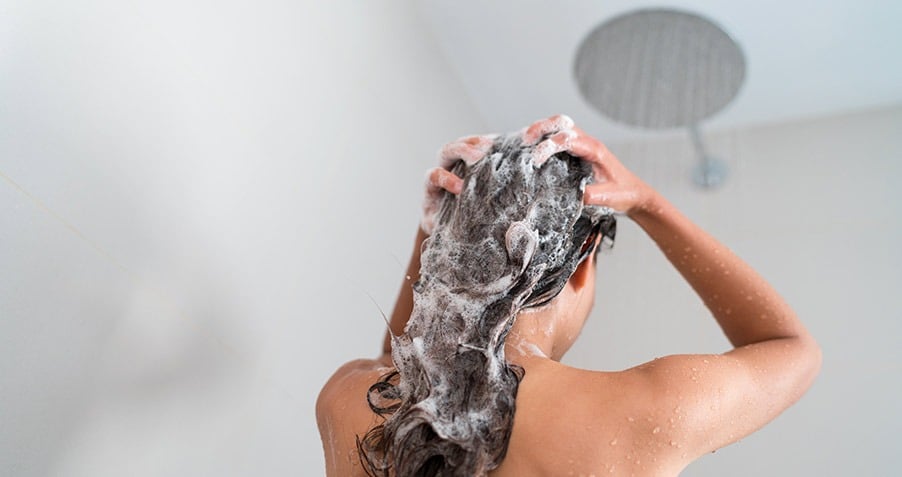
Sulfates have become a hot topic as of late with many people worried about the possible damage to their health. Sulfates are found in thousands of everyday products and you probably encounter them every day.
Are sulfates really that bad for you? Excessive use of products containing sulfates may cause irritation to your eyes, skin, hair, and even lungs. Those with dry skin conditions should avoid sulfates. There is no direct link between sulfates and cancer. Sulfates have a negative impact on the environment and wildlife.
This article explores the use of sulfates so that you can get a better idea of what products they’re found in and whether you should avoid them or not.
What Are Sulfates?
Sulfate is salt that is created when sulfuric acid reacts to another chemical. Sulfate is actually a broader term for all types of sulfates that are commonly found within cosmetic and food products.
People generally concern themselves over are synthetic forms such as sodium lauryl sulfate (SLS) and sodium Laureth sulfate (SLES). These are both produced from petroleum and coconut or palm oil.
SLS and SLES are mostly used by companies to produce lather. This is the foam that forms when using the product such as soap. The lather is linked with a deeper or more powerful cleaning product making it very popular. Although, the lather is not an indication of a better cleaning product.
Sulfates are not deemed bad for your health but there is a lot of controversy surrounding the ingredients.
Why Do People Say Sulfates Are Bad?
Sulfates have gotten a bad reputation recently as a result of our increasing focus on climate change and natural products. Sulfates found in everyday cosmetics are usually derived from petroleum which is not environmentally friendly.
Some have, therefore, labeled sulfates as not just unfriendly to the planet but unfriendly to your skin and hair too. Some medical professionals suggest that only excessive use of sulfates is the problem.
Here is a closer look at the individual issues currently associated with both SLS and SLES.
Health Concerns
Sulfates can cause irritation to the skin, eyes, hair, and even lungs with excessive and long-term use. Some products made with SLES have also been linked to an increased risk of cancer due to the ingredient 1,4-dioxane also being present. 1,4-dioxane is usually present as a result of contamination with the product during its production.
Sulfates are considered to be too effective at removing oils. When used on the skin they can leave your skin feeling dry and parched. Many people with skin conditions such as dry skin, eczema, and psoriasis have reported sulfates worsen these conditions. Research has confirmed this theory.
Environment
Petroleum and palm oil are both considered environmentally unfriendly ingredients. Petroleum requires a huge amount of resources to process and effects all the local environments in which it is produced including air, land, water, and wildlife.
Palm oil has been under intense scrutiny over the last few years as investigations have revealed the devastating effects of palm oil farming on the local environment and wildlife, particularly endangered orangutans.
Sulfates can also damage the environment when washed into our local waters such as rivers and oceans. Sulfates can seriously affect the health of natural algal and marine life.
Testing on Animals
Sulfates have come under further scrutiny with the recent rise in animal rights and veganism with many people acknowledging the fact sulfates are tested on animals. The tests are conducted to check the level of irritation caused to eyes, skin, and hair. Many people are then opposed to the use of both SLS and SLES, opting for more ethical alternatives.
Testing on animals is increasingly becoming a big issue for modern conscious consumers who believe there are better alternative ways of testing.
Where Can You Find Sulphates?
Sulfates are an incredibly popular ingredient for everyday cosmetics so it is likely you will find them in your:
The number of sulfates in each product will vary depending on the product and region of the world you live in. While commonly used in low doses, you can find products in which 50% is made up of sulfates. True eco-friendly producers only use small or trace amounts of sulfates which is why many of their products do not foam as much as conventional products.
Should You Avoid Sulfates?
Sulfates are not currently linked to any serious health implications. The most common issues are irritation of the skin, eyes, hair, and lungs. Those with sensitive skin will do well to avoid sulfates as they could be worsening your condition with their ultra-oil removing ability.
At this moment in time, sulfates are not directly linked to an increased risk of cancer. 1,4-dioxane which is a common contaminant of sulfate products is linked with an increased risk of cancer. However, it is extremely difficult to know whether your products are contaminated with 1,4-dioxane or not.
Those who are eco-conscious should avoid sulfate products and opt for more eco-friendly alternatives using natural ingredients from sustainable sources.
If you’re currently using products that contain sulfates but are not affected by their use, it is likely that there no risk for you continuing with these types of products.
Those using cleaning products containing sulfates should make sure they open doors and windows to allow air to flow into the room. This will effectively stop the product from lingering which may cause overexposure to sulfates. This can lead to irritation.
What’s the Alternative?
With the recent focus on environment, veganism, and natural ingredients there has been a huge surge in the number of products that are labeled “sulfate-free”.
You will find these products in most good supermarkets and health stores. These products contain eco-certified ingredients including:
- SLSA (Sodium Lauryl Sulfoacetate)
- Sodium Cocoyl Glycinate
- SCS (Sodium Coco-Sulfate)
- Disodium / Sodium Cocoyl Glutamate
- Decyl Glucoside
- Lauryl Glucoside
Of these, SCS is the most popular alternative as it has been approved by various certification bodies. SCS still includes SLS though but is far less irritating to your skin as the starting material is coconut oil.
If you’re looking for an alternative to common sulfates, you can opt for “sulfate-free” products that are made using natural ingredients. However, the user experience will slightly differ as little to no foam will be produced.
A lack of lather can lead to a strange experience when shampooing, cleansing or brushing your teeth. It is a far more natural sensation that may take some getting used to but you can be sure your risk of irritation is low.
The best alternatives for cosmetic use are those that are oil-based rather than liquid. Remember, the lather is not essential to a good cleaning. It is only a gimmick to give off the sensation of a better more powerful cleaning experience.
For cleaning products, try creating natural homemade products including vinegar and lemon juice. Not only will you save money but you will clean just as effectively with none of the harsh chemicals usually found in these types of products.
Buying sulfate-free products or using eco-friendly cleaning products made with natural ingredients is a great way to reduce your impact on the planet too.
The Verdict
Sulfates are generally not bad for your health. Some may cause irritation to your skin, eyes, and hair but only with excessive use over a long period of time.
Going sulfate-free is a great idea for those with sensitive skin and those looking to lead a more natural and ethical lifestyle. Sulfate-free products are less damaging to the environment and wildlife.



